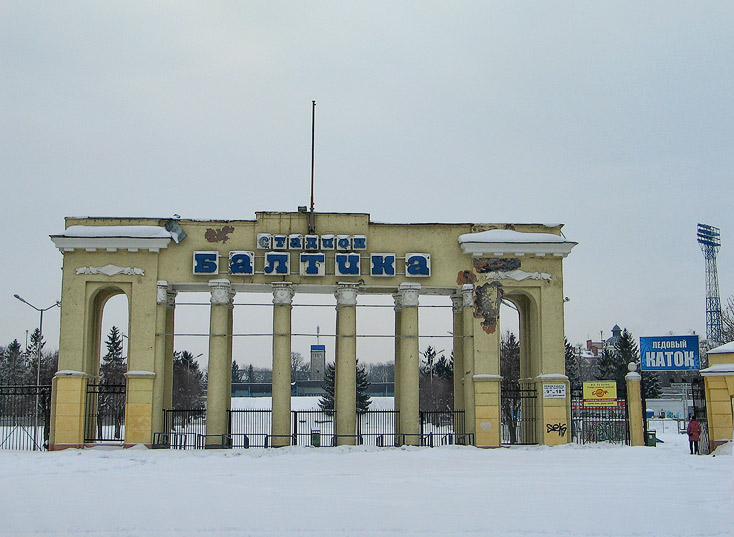
In many ways, Russia is a nation of extremes. From the radical ideological dictatorship imposed by the leaders of the Soviet Union to the harsh winters for which it is internationally famous, there is very little about the world’s largest country which falls into a middle ground – even in sport, modern day Russia is a country which either excels or fails spectacularly in most arenas, and this constant battle between two polar opposites is a feature which defines the nation to much of the outside world.
When it comes to the footballing sphere, very little changes. In terms of finance, there is huge gulf between the likes of Anzhi and Zenit with their amble backing, and sides such as Tom Tomsk and Volga Nizhny Novgorod, teams who have recently been placed under a transfer embargo and are likely to be heading to the government with cap in hand if they are to exist beyond the end of the current campaign. In terms of success, there is an ever wider chasm between the teams based in the capital and those from elsewhere – until the relatively recent emergence of Zenit St Petersburg and Rubin Kazan as domestic forces, few sides from outside Moscow have been able to assert themselves as regular challengers for Russia’s top footballing prize.
The footballing extremes are not always removed from the nation’s more typical features. For a nation spanning multiple time zones, geography and sheer distance are always likely to be an issue when arranging a professional sporting league, and in that respect Russia is constantly fighting against its circumstances. Its ice hockey league, the KHL, is second only to the North American NHL in terms of talent and reputation, yet has responded to the distance issue by expanding even further – Belarus, Latvia, Kazakhstan and Slovakia all have a representative in the competition, and there to plans to take the league to Ukraine and even Italy in the coming years. Thankfully for the clubs and supporters, the Russian Football Union has not shown any desire to resurrect the old Soviet Top League, but with problems facing clubs such as Luch-Energia Vladivostok in the East and Rotor Volgograd in the South, it will come as little surprise to hear that Baltika Kaliningrad, the most westerly team in the Russian league system, are also enduring difficult times.
Kaliningrad itself is something of a geographical anomaly, the capital of its own region cut off from the west of Russia by the Baltic states and Belarus as a result of post-war population transfer and the Soviet need for another Western port. Whilst the current population of the city is less than 1% German, the old Königsberg identity is one which is often rallied around, whether as means of developing community or in order to express dissatisfaction with their lack of involvement in affairs closer to Moscow. Teams flying in to Kaliningrad are often faced with German banners from the home support, some of which have unfortunately adopted far-right political symbolism as part of the club identity – the neo-Nazi 88 is a regular feature on the flags of the Baltika ultras – although there is little evidence to suggest that Kaliningrad is any more a hive of right wing activity than any other Russian city.
Despite the vocal home support however, Baltika appear to be heading the way of so many teams playing in the fringes of modern Russia and away from the bright lights of Moscow and the centre. A strong few seasons in the mid 90s saw Baltika earn a Premier League spot for three years, but since relegation in 1998 it has been the spectre of relegation rather than the dream of promotion which has loomed over Kaliningrad, the team twice dropping into the regional tiers only to emerge again at the first attempt. Their most recent slip into the Second Division came in 2004, but immediate promotion and consolidation appeared to have averted a crisis. However, a 15th place finish last season came as a worry after two years of plying their trade closer to the middle of the First Division pack, and with the majority of the current campaign already completed, Baltika sit firmly in the relegation zone in a group of five teams separated by as many points. Without a league win since the beginning of October, there is every risk that Russia’s westernmost club will again be confined to the lower levels of football.
For other sides in the First Division, Baltika’s impending relegation will come as a sigh of relief – it is the only away trip in the league which cannot be reached over land, and a noticeable pain in the scheduling. For manager Evgeni Perevertailo, a man who has spent his entire playing and managerial career in the warmer climes of the Russian South before being offered the assistant manager’s role at FC Nizhny Novgorod in 2009, the drop into the regional tiers will be bittersweet – a comforting reunion with a level of football he is more than familiar with, and the sinking realisation that after waiting years for the opportunity to move up in the footballing world, his brief foray into the top two tiers will come to an end far quicker than expected.
At least for fans of the Kaliningrad side there will be some consolation in the knowledge that their team has been through this before and succeeded on each occasion, none of their post-Soviet sojourns into the lower leagues lasting longer than a single title-winning season, such is the lack of competition in their area. However, as a club representing one of the most unique cities in Russia, Baltika’s apparent demise is bad news for those seeking a diversification of power in a Russian football world again closing in around a select elite. Whether they are able to return to their former level yet again remains to be seen.
